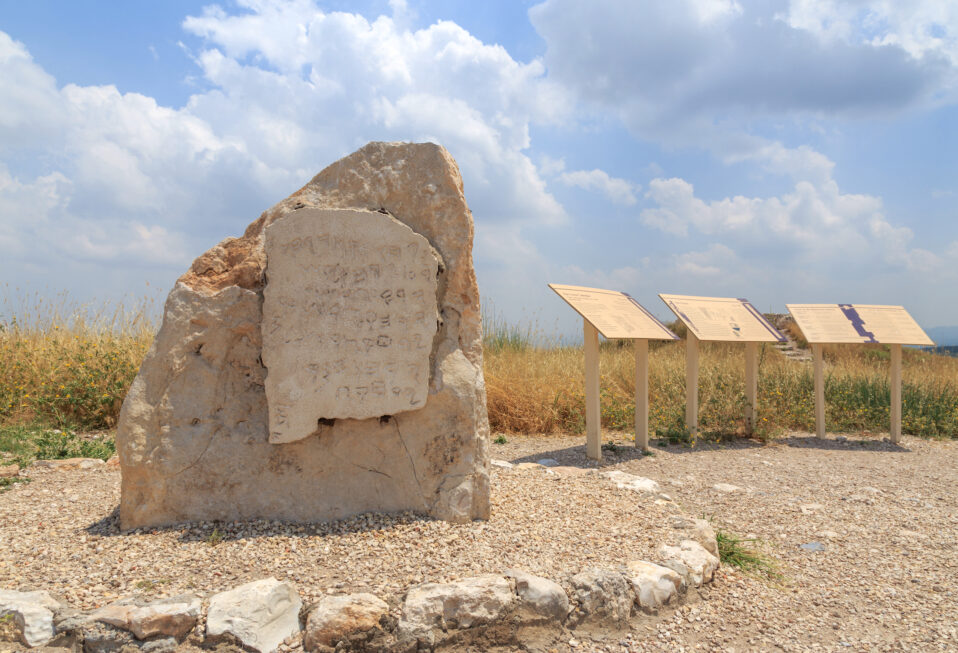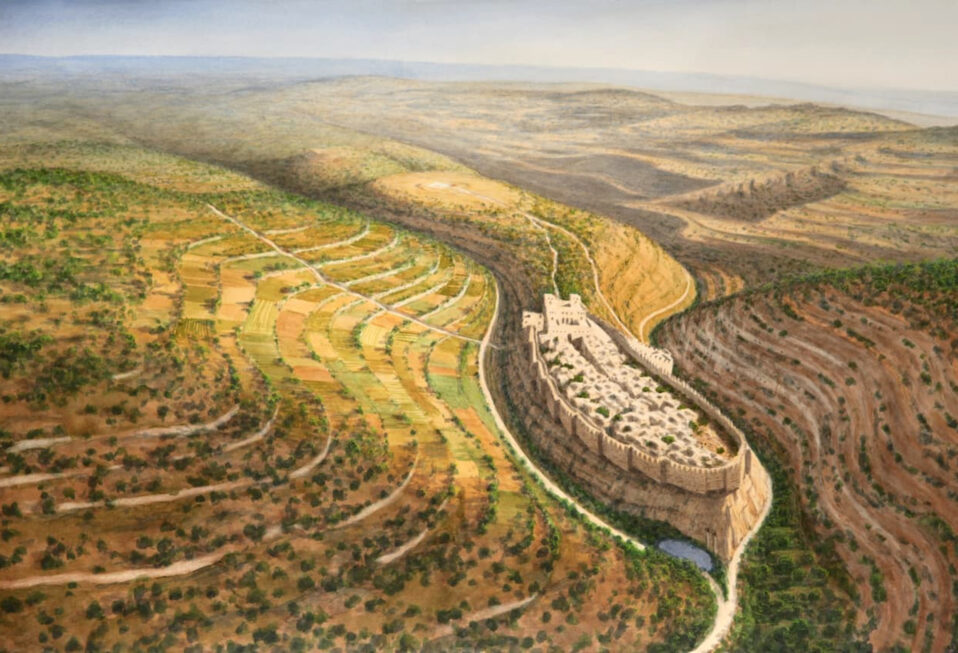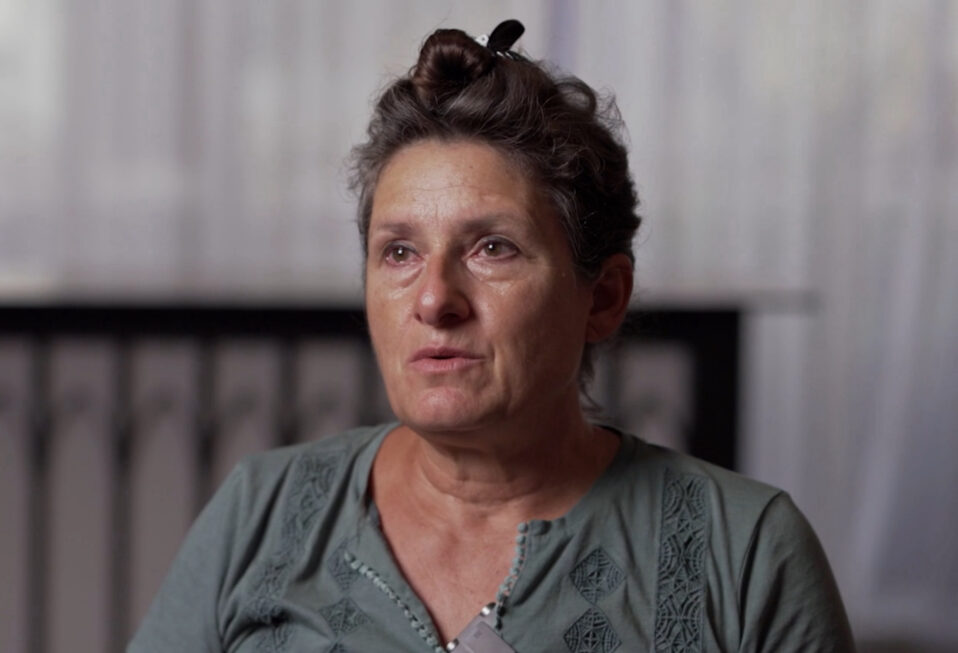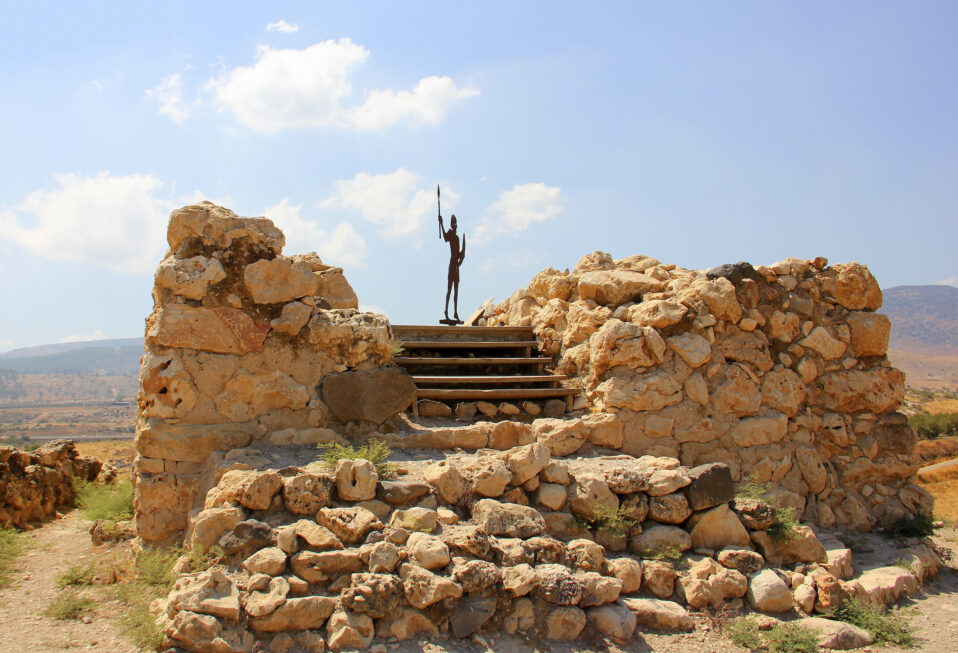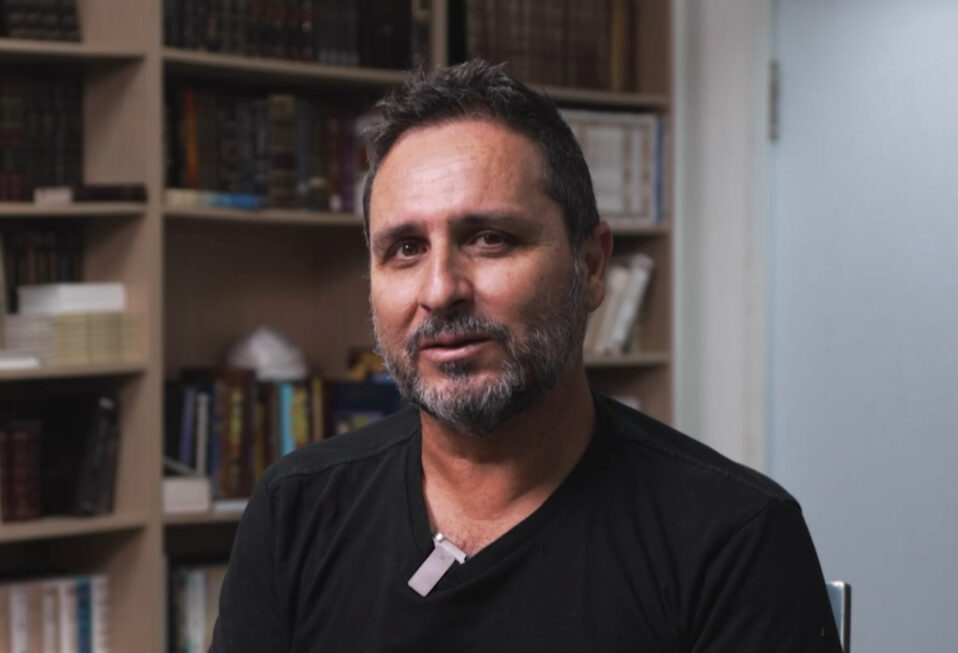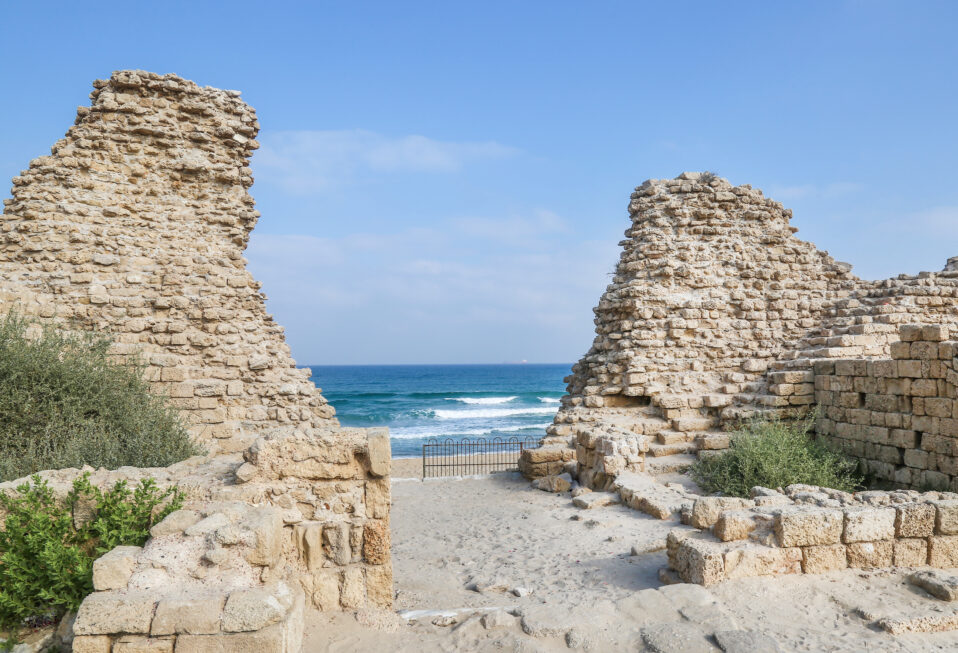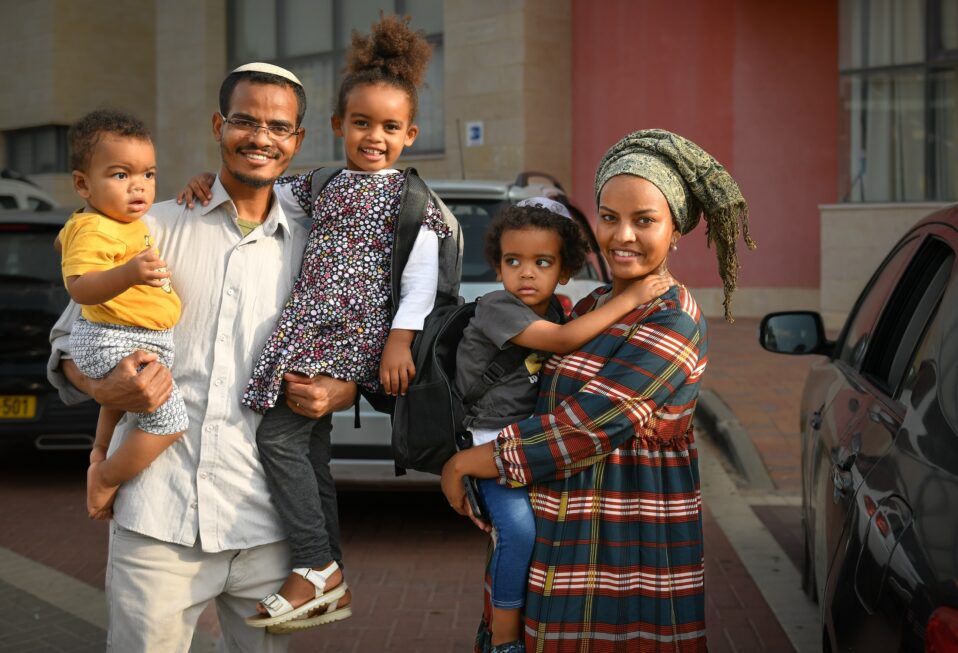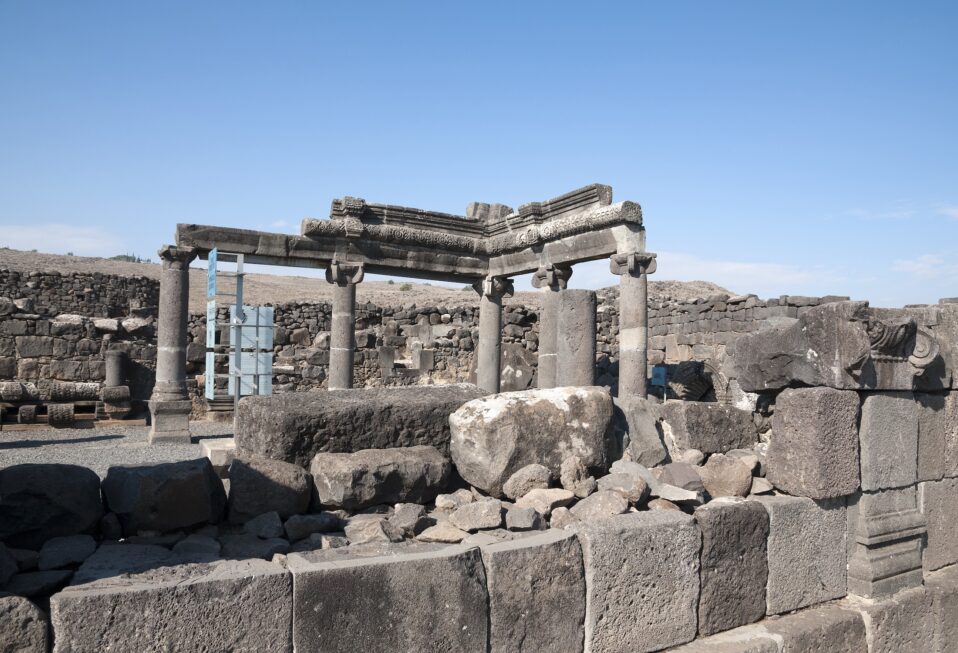By Arlene Bridges Samuels
Prayers for Israel and the Israel Defense Forces (IDF) at war are ascending from worldwide Christian prayer meetings online, in person, and personal prayers day and night on the lips of millions of believers. I recently spoke at a church that requested an update on Israel’s war against unleashed evil. When the gathering concluded with a season of prayer for Israel, one of the pastors prayed with a focus on 2 Chronicles 20:1-30.
As the biblical and historical account goes, Judah’s King Jehoshaphat and the Jews faced a huge army headed their way made up of their ancient foes—the Moabites, Ammonites, and men from Mount Seir. When fear gripped them, prayers and fasting began, and Jahaziel, a Levite, shared a word from the God of Abraham, Isaac, Jacob, and Jesus: “Do not be afraid or discouraged because of this vast army. For the battle is not yours, but God’s.”
God then gave specific directions for the coming battle, whereupon “Jehoshaphat bowed his head … and all Judah and the inhabitants of Jerusalem … bowed before the LORD.” Assembling early the next day, King Jehoshaphat appointed singers to lead the army. As they marched, they sang, “Give thanks to the LORD, for His love endures forever.” The Lord Himself set up ambushes where those in Mount Seir were defeated—with a final result that Israel’s enemies destroyed one another. I am not a prophet and I do not claim to know how God will enact His purposes in this war, but I do know that prayer is foundational, that this biblical account is full of hope, and I will “pray” it.
Getting much of my daily news from international Bible teacher and Israeli Jewish believer Amir Tsarfati on his Telegram channel, I was captivated by a video clip. One of the IDF soldiers who had been on the ground in Gaza for a week said, “Please continue to pray for us. We see miracles there. Your prayers work.” Other short clips show IDF members singing together in various battle locations. It is inspiring to hear their jubilant, strong voices raised in praise of God as they face possible death or injury, yet they are determined to have victory over evil.
The IDF, the most humanitarian army in the world, is encountering dangers we cannot imagine. Dangers within the 300 miles of tunnels underneath Gaza (doubtless booby-trapped by the terrorists), dangers from IEDs (improvised explosive devices), and dangers in northern Israel—with increasing threats from Hezbollah right over Israel’s border with Lebanon. They face an implacable foe called satan, expressed in ancient Jew-hatred that never seems to die.
Today’s venomous demonstrations are not new, either. Beginning in the 1930s, Hitler perfected a mesmerizing style of oratory that kept German crowds riled up until the shocking murders of six million Jews burst into the open in 1945. With only radio broadcasts and scant reporting available, much of the world was in the dark about Hitler’s genocide of European Jews until the end of World War II.
The Third Reich’s wickedness was widely revealed through on-site photographs ordered by General Dwight D. Eisenhower in liberated concentration camps. He wanted to ensure that evidence was accumulated and maintained to silence any doubters of Nazi atrocities. Today, however, Hamas and other Islamic regime proxies have modernized Hitler’s propaganda and brutality into indescribable acts of evil. Terrorists themselves—with their body cams and victims’ mobile phones—videoed their cruelty with elation. One terrorist called his parents, excitedly bragging that he had murdered 10 Jews “with his bare hands.” His father praised him.
Hamas unleashed its weighty war crimes on October 7, which too quickly flashed around the world—accusing Israel of war crimes instead. While Hamas is targeting Jews, we cannot ignore Mahmoud al Zahar, a co-founder of Hamas. “We are not talking about liberating our land alone,” he said last year. “The entire 510 million square kilometers of planet Earth will come under [a system] where there is no injustice, no oppression, no Zionism, no treacherous Christianity.”
Anglican Theologian Reverend Dr. Gerald McDermott recently authored an article in Christianity Today that is well worth reading: “Christians Have A Duty to Hate the Evil of Hamas.” Part of his explanation includes commentary for believers who may struggle with Israel’s defensive war. “First, we are called by both Testaments to hate evil. Proverbs says to fear the Lord is to ‘hate evil’ (Proverbs 8:13), and the Apostle Paul urges us to ‘hate what is evil’ (Romans 12:9). We should hate the evil of Hamas—and not be afraid to say so publicly.”
The war crimes accusations launched against Israel around the world as verbal (and sometimes violent) weapons are aimed at the wrong target. In another timely article, Bruce Hoffman at The Atlantic wrote a summation called “Understanding Hamas’s Genocidal Ideology.” Documented on August 18, 1988, Hamas’s original founding goals included four main themes:
- The complete destruction of Israel to set up a Shia Muslim theocracy
- Unrestrained holy war
- Total refusal to negotiate an agreement with Israel regarding claims to the Holy Land
- Repeating propaganda, conspiracy theories, and Jew-hating figures of speech.
Nothing has changed!
In other words, on October 7, 2023, Hamas—with minds long occupied by hate—enjoyed hours of unrestrained, brutal jubilation to enact their goals. That is, until Prime Minister Netanyahu and Israel’s cabinet officially declared war the following day: October 8, 2023.
Hamas is guilty of war crimes. Here are a few that are prohibited and listed in numerous world bodies, including the International Committee of the Red Cross, Geneva Conventions of War in 1949, and the United Nations: Murder. Torture, including mutilation. Hostage-taking. Intentional attacks against civilians. Pillage. Rape. These crimes do NOT describe Israel, a nation founded on democratic principles.
The Holocaust was—and remains—a horror embedded within Jewish hearts and history, and although Germans kept meticulous records to please Hitler, they nevertheless did their best to hide their evil. Today, it is truly staggering that Hamas’s evil doings are being glorified by protestors worldwide, with Israel and Jews equally vilified. This, despite social media filled with hundreds of hours of Hamas’s own raw footage. The world now knows the horrific truth of baby beheadings, dismembering children, a father and child tied together then burned alive, and women raped before and after murders. Clearly, satanic lawlessness has broken out with a vengeance.
The raw footage of barbaric facts was released to 200 international journalists in a private showing after Israel’s military struggled for days debating whether or not to show the horrific footage. Eilon Levy, an Israeli government spokesman, commented, “I can’t believe … we have to do this as we try to defeat a terrorist organization that is brutally slaughtering our people.” He added that Israel is seeing in “real time a phenomenon akin to Holocaust denial unfolding, as people cast doubt on the scale of the atrocities Hamas has recorded to glorify all this violence.”
IDF spokesman Daniel Hagari explained, “We will not let the world forget who we are fighting.”
More than almost any other IDF policy, one of the most outstanding (and unusual) is to send warnings to Gazan civilians to evacuate to designated safe locations before any bombings begin. I daresay no military on earth follows the example of the Israel Air Force, which has repeatedly dropped leaflets, made telephone calls, and sent text messages to alert Gazan civilians about impending attacks.
Conversely, Hamas acts by cleaving to its policy of using civilians as human shields, killing Palestinian civilians or blocking them from the roads leading to safety, and using mosques and hospitals as weapons depots and hiding places. Add to this, among their many other war crimes: terrorists hide in Red Cross ambulances trying to escape or fight. Now you might understand why Israel targets particular ambulances.
For facts and prayers, I suggest you remain updated with CBN News and IDF’s daily update. Commit to passing on at least one fact and one prayer a day to honor our Jewish-birthed faith and help Israel oppose lies and slander. We must be the sources of facts!
We welcome readers to join our CBN Israel team this week to read and meditate on 2 Chronicles 20:1-30.
Prayer Points:
- Pray that the IDF experiences miracle after miracle—for their safety and for their anxious families.
- Pray for the safety of our American soldiers stationed in northeast Syria since 2015. They are under constant attack from Iran.
- Pray for families who know that more than 340 of their sons and daughters have already died defending their homeland.
- Pray for the continuation of massive humanitarian aid flowing into Israel from Christians worldwide.
- Pray for believers to commit to sharing facts that oppose the propaganda against Israel’s just war.
Arlene Bridges Samuels pioneered Christian outreach for the American Israel Public Affairs Committee (AIPAC). After she served nine years on AIPAC’s staff, International Christian Embassy Jerusalem USA engaged her as Outreach Director part-time for their project, American Christian Leaders for Israel. Arlene is an author at The Blogs-Times of Israel and has traveled to Israel since 1990. She co-edited The Auschwitz Album Revisited and is a volunteer on the board of Violins of Hope South Carolina. Arlene has attended Israel’s Government Press Office Christian Media Summit three times and hosts her devotionals, The Eclectic Evangelical, on her website at ArleneBridgesSamuels.com.



